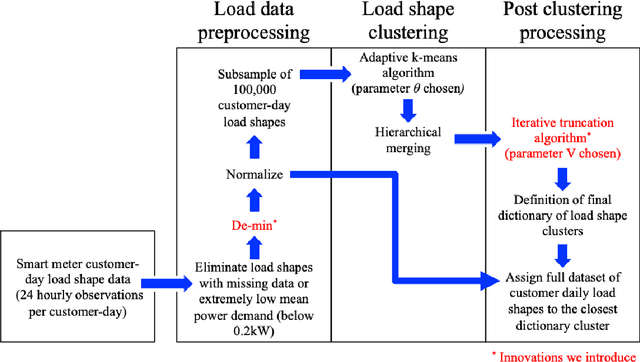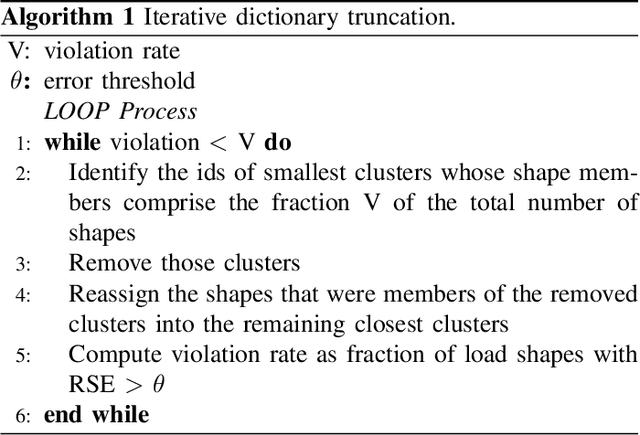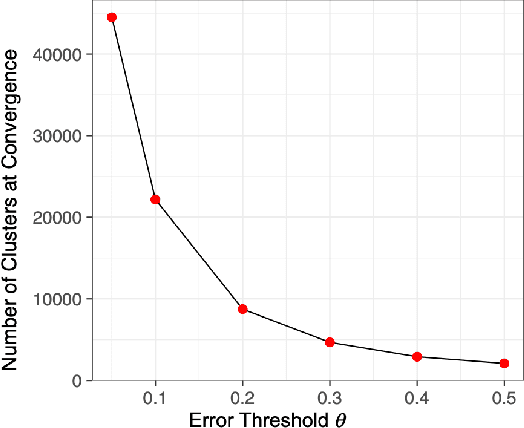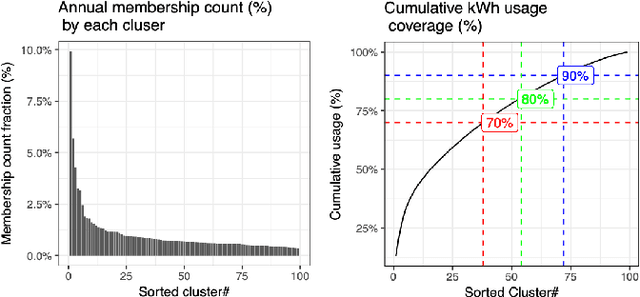Investigating Underlying Drivers of Variability in Residential Energy Usage Patterns with Daily Load Shape Clustering of Smart Meter Data
Paper and Code
Feb 16, 2021



Residential customers have traditionally not been treated as individual entities due to the high volatility in residential consumption patterns as well as a historic focus on aggregated loads from the utility and system feeder perspective. Large-scale deployment of smart meters has motivated increasing studies to explore disaggregated daily load patterns, which can reveal important heterogeneity across different time scales, weather conditions, as well as within and across individual households. This paper aims to shed light on the mechanisms by which electricity consumption patterns exhibit variability and the different constraints that may affect demand-response (DR) flexibility. We systematically evaluate the relationship between daily time-of-use patterns and their variability to external and internal influencing factors, including time scales of interest, meteorological conditions, and household characteristics by application of an improved version of the adaptive K-means clustering method to profile "household-days" of a summer peaking utility. We find that for this summer-peaking utility, outdoor temperature is the most important external driver of the load shape variability relative to seasonality and day-of-week. The top three consumption patterns represent approximately 50% of usage on the highest temperature days. The variability in summer load shapes across customers can be explained by the responsiveness of the households to outside temperature. Our results suggest that depending on the influencing factors, not all the consumption variability can be readily translated to consumption flexibility. Such information needs to be further explored in segmenting customers for better program targeting and tailoring to meet the needs of the rapidly evolving electricity grid.
 Add to Chrome
Add to Chrome Add to Firefox
Add to Firefox Add to Edge
Add to Edge